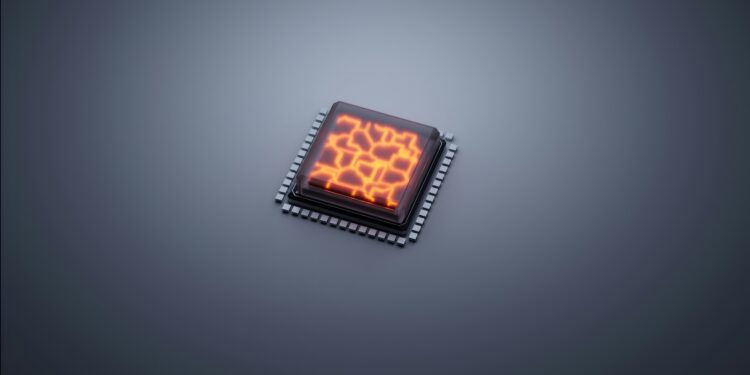Apple is constantly evolving and is increasingly relying on its own developments. An important step in this direction is the new WiFi chip developed by Apple itself, which will be used for the first time in all iPhone 17 models. This decision could not only improve the connectivity of the devices but also bring strategic advantages for Apple. Industry analyst Ming-Chi Kuo has published new details that indicate that Apple is further expanding its independence from suppliers such as Broadcom.
With the launch of the iPhone 17 next fall, Apple is planning a significant technological change. All models will be equipped with an in-house WiFi chip that is specifically optimized for Apple's ecosystem. According to Kuo, this change will improve connection speed, reduce latency, and also reduce production costs for Apple in the long term. While the iPhone 16 already supports WiFi 7, the new Apple chip could use this technology even more efficiently. The change does not only affect the iPhone, but is part of a long-term strategy in which Apple develops as many core components as possible itself.
Apple says goodbye to Broadcom's WiFi chips
So far, Apple has relied on a combined chip from Broadcom for WiFi and Bluetooth connectivity. But there have been indications for some time that Apple wants to reduce this dependency. Some time ago, Kuo predicted that Apple would equip almost all of its products with its own WiFi chip in about three years. With the iPhone 17, the implementation of this plan is now apparently beginning. The advantages of an in-house solution are obvious. Apple can better coordinate hardware and software, which not only leads to better performance, but also improves energy efficiency. At the same time, the company saves costs because it avoids expensive licenses and dependencies on third-party providers.
WiFi 7 as the new standard in the iPhone 17?
A crucial point is the support of WiFi 7. While in Kuo’s current report Although no exact version number is given, he had previously stated that the new chip will be compatible with WiFi 7. The iPhone 16 series already supports WiFi 7, but with Broadcom technology and some limitations. WiFi 7 offers several advantages:
- Faster speed: Qualcomm says WiFi 7 will reach theoretical peak speeds of over 40 Gbps, making it up to four times faster than WiFi 6E.
- Lower latency: The connection becomes more stable and has less delay, which is particularly noticeable when gaming, video calling and streaming.
- Dynamic frequency usage: WiFi 7 can use the 2.4 GHz, 5 GHz and 6 GHz bands simultaneously, enabling better performance and stability.
If Apple actually installs a specially optimized WiFi 7 chip of its own, the iPhone 17 could set new standards in terms of connectivity.
Conflicting reports about the availability of the new chip
There are different estimates as to which iPhone 17 models will receive the new Apple chip. According to Jeff Pu, another well-known analyst, it was initially planned that only the iPhone 17 Pro models would be equipped with the new chip. However, Kuo's current report suggests that Apple will make the switch for all four models. Whether this will actually happen remains to be seen.
Connection of WiFi and mobile phone chip possible
Another long-term goal of Apple could be to combine WiFi and cellular technology in a single chip. With the iPhone 16e, Apple has already introduced the C1 modem chip, an in-house development that shows that Apple is increasingly developing wireless technologies itself. The idea behind such a merger would be that WiFi, Bluetooth and cellular would no longer exist as separate modules, but would be combined in a single component. This would have several advantages:
- Energy efficiency: An optimized system could reduce power consumption and extend battery life.
- Better performance: Since Apple supplies the hardware and software from a single source, performance could be improved and connection quality optimized.
- Lower costs for Apple: Independence from suppliers would reduce production costs.
It is still unclear whether Apple will implement this step with the iPhone 17 or only in future generations.
Apple's new strategy: Own chips for better performance
The iPhone 17 will most likely be equipped with a WiFi chip developed by Apple. This could mean a significant improvement in connection speed and stability. At the same time, with this step, Apple is once again signaling that the company is increasingly relying on its own components in order to become more independent and efficient in the long term. The exact technical implementation and the question of whether all iPhone 17 models will actually receive the new chip remains to be seen. What is clear, however, is that with this development, Apple is taking another important step towards complete in-house production. If Apple also combines cellular and WiFi technology in a single chip in the future, future iPhones could be even more energy efficient and powerful. (Photo by Unsplash+ / Osarugue Igbinoba)
- iPhone 17 Pro – Apple tests new charging technology
- iPhone 17 Pro: This is what Apple's new top model could look like
- iPhone 17 Air: First images show radical design
- iPhone 17 Pro: Apple reportedly relies on aluminum – all information
- iPhone 17 series: How credible are the current leaks?





